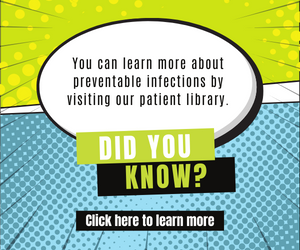Love in the Time of STIs

Spring is in the air and it’s a perfect time to think about sexually transmitted infections (STIs) and how you can protect yourself. STIs may be caused by bacteria, viruses and parasites that are passed from person to person, primarily through a variety of sexual activities.1
- Bacterial STIs – chlamydia, gonorrhea, and syphilis – can be treated and cured with antibiotics.1
- Viral STIs – genital herpes, Hepatitis A and B, Human immunodeficiency virus (HIV), human papillomavirus (HPV) – cannot be cured; however, treatments are available to manage symptoms.1
- Parasitic STIs – pubic lice (crabs), scabies, and trichomoniasis – can be cured with over the counter treatments, or in the case of trichomoniasis, antibiotics.1
Who is most affected by STIs?
Anyone who is sexually active may be at risk of being exposed to an STI. However, rates are highest, and increasing most quickly among young people ages 15 to 24.2 The best protection may be knowing how to avoid sexually transmitted infections.
How are STIs spread?
- The short answer is through the exchange of bodily fluids. That may occur due to sexual activity of any kind (including oral sex) that involves skin on skin contact.3
- Some STIs may be transmitted without sexual contact, by sharing personal items such as toothbrushes, razors, needles or tattoo equipment (Hepatitis B)4 or infested personal articles such as bedding and clothing (parasitic STIs).1
- STIs are stealthy – because they may have no symptoms, or symptoms may not emerge for months or years after infection, STIs can be spread without either partner being aware of it.3
- Some STIs may be transmitted from mother to child through breast milk or during pregnancy and childbirth.3
Truth or consequence?
Why not get checked? Making the smart decision to get tested for STIs does not suggest you have had many sexual partners. It only takes sex with one person who is infected with an STI to be at risk. The same is true for everyone. That’s how things “go viral” – one person at a time.1
You can help stop the spread by knowing your own STI status, and by practicing safe sex every time. STI screening may be provided by a doctor, walk-in clinic or sexual health clinic, and may involve a urine test, vaginal swab, blood test, or a simple physical examination. While many STIs can be cured and all can be managed, some can have serious long-term consequences such as infertility, especially left undetected and untreated.3 Are you nervous about getting tested? Consider going with your partner or a close friend who can provide support.1
Protect yourself
- Practice safe sex – Use a condom or other latex barrier protection every time.1
- Have regular check-ups to screen for STIs, especially if you are with a new partner.1
- Protect yourself by being immunized against some of the viral STIs for which vaccines have been developed (see sidebar below).5
Vaccine-Preventable STIs5
- Hepatitis A
- Hepatitis B
- Human Papilloma Virus
Brought to you by vaccines411.ca – know where to go for your vaccinations.
This information should not be used as a substitute for the medical care and advice of your doctor. There may be variations in treatment that your physician may recommend based on individual facts and circumstances.
Read more Vaccines411® Articles 
Sources
Note: the hyperlinks that direct to other sites are not continuously updated. It is possible that some links become untraceable over time. Thank you.
- Canadians For Choice website.
http://www.sexualhealthandrights.ca/ - STI - Sexually Transmitted Infections - Sexual Health & STI - Public Health Agency of Canada
http://www.phac-aspc.gc.ca/publicat/std-mts/index-eng.php - What are the chances of getting an STI-STD? | STIs-STDs | SexualityandU website.
http://www.sexualityandu.ca/stis-stds/what-are-the-chances-of-getting-an-sti-std - Hepatitis B - STI - Sexually Transmitted Infections - Public Health Agency of Canada.
http://www.phac-aspc.gc.ca/publicat/std-mts/hepb-eng.php - CDC - Vaccine-Preventable STDs - 2010 STD Treatment Guidelines.
http://www.cdc.gov/std/treatment/2010/vaccine.htm



